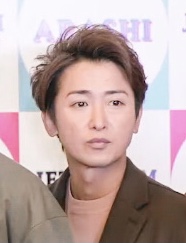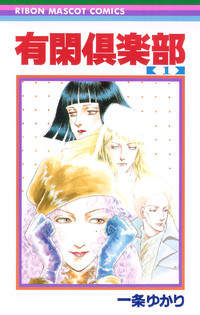Related Research Articles
Hiroyuki Nishimori is a Japanese manga artist, known for his works Kyō Kara Ore Wa!! (1988–1997) and Cheeky Angel (1999–2003). The latest won the 46th Shogakukan Manga Award in the shōnen category in 2001.

Keiji Fujiwara was a Japanese actor and voice actor.
Mitsuki Saiga is a Japanese voice actress affiliated with Ken Production. Her major roles include Maria Ross in Fullmetal Alchemist, Yoite in Nabari no Ou, Kuranosuke Koibuchi in Princess Jellyfish, Tiz Arrior in Bravely Default, and Mòrag in Xenoblade Chronicles 2. Her deep and rich voice make her a versatile and fluid actress. She won a Best Supporting Actress Award at the 2nd Seiyu Awards for her work in Moyasimon: Tales of Agriculture, Gurren Lagann, and Toward the Terra. She also won the Overseas Fan Award at the 4th Seiyu Awards for her portrayals of Wolfram in Kyo Kara Maoh! and Souji Okita in Peacemaker Kurogane. As the band Mitsuki Saiga feat. Just, she released several albums and singles that have charted on Oricon.

Kaiketsu Zubat, is a tokusatsu superhero series that aired in 1977. Created by Shotaro Ishinomori, this 32-episode series, harkens back to tokusatsu superhero shows of the 1950s, but with a late-1970s twist. The series was first released on DVD in 2008.

Satoshi Ohno is a Japanese idol, singer, actor, radio host, artist, dancer, and choreographer. He is the lead vocalist and leader of the boy band Arashi, hence his nickname Leader.

Kyo Kara Maoh! is a series of Japanese light novels written by Tomo Takabayashi and illustrated by Temari Matsumoto. The story follows the adventures of Yuri Shibuya, an average 15-year-old Japanese high school student, who is suddenly transported to another world where he is told that he is now the king of demons.

Asuka (あすか), formerly Monthly Asuka, is a bimonthly Japanese shōjo manga magazine published by Kadokawa Shoten. The magazine was established in 1985. It is released on the 24th of every odd-numbered month as of May 2021. Much like its sibling publication Shōnen Ace, it places some emphasis on anime tie-ins and spinoffs. Manga serialized in Asuka are published in tankōbon format under the Asuka Comics imprint.

Shōnen Sunday S, formerly known as Shōnen Sunday Super, is a monthly shōnen manga magazine published by Shogakukan in Japan.

Kyō Kara Ore Wa!! is a Japanese manga series written and illustrated by Hiroyuki Nishimori. The manga was initially published in Shogakukan's shōnen manga magazine Shōnen Sunday Zōkan, running monthly from September 1988 to August 1990. The series was then transferred to Weekly Shōnen Sunday and serialized from September 1990 to November 1997. Its chapters were collected in 38 tankōbon volumes. A four-chapter manga sequel, titled Kyō Kara Ore wa!!: Yūsha Sagawa to Ano Futari-hen, was serialized in Shōnen Sunday S from November 2018 to February 2019 and collected in a single tankōbon volume.
This article lists the albums attributed to the series Mobile Suit Gundam 00.

Yūkan Club is a Japanese manga written and illustrated by Yukari Ichijo. It is serialized in Shueisha's Bessatsu Margaret. Yūkan Club received the 1986 Kodansha Manga Award for the shōjo category. The manga was adapted into an original video animation by Madhouse Studios. It was also adapted into a Japanese television drama.
Temari Matsumoto born April 8, is a Japanese manga artist and illustrator from Nagano Prefecture.
Nozomu Tamaki is a Japanese manga artist. His most notable work, Dance in the Vampire Bund, was licensed in English by Seven Seas Entertainment and adapted into a 12-episode anime series by the studio Shaft.

Kyō, Koi o Hajimemasu is a Japanese shōjo manga series created by Kanan Minami. It started serialization in 2008 in the magazine Sho-Comi, and completed in 2013, with 15 bound volumes have been released in Japan under the Flower Comics label.
Kamen Rider Amazons, known in the overseas market as Amazon Riders, is a 2016 Japanese superhero tokusatsu web drama. It is a darker and more mature reimagining of the 1974 television series Kamen Rider Amazon, and part of Toei's Super Hero Year, celebrating the 45th anniversary of the Kamen Rider Series. Amazon Riders was originally exclusively released through Amazon Video in Japan starting April 1, 2016. It was also broadcast on television on BS Asahi starting July 3, 2016, and Tokyo MX starting July 6, 2016. In a similar vein as the reboot films based on the Shōwa era series, Kamen Rider: The First & Kamen Rider: The Next, Kamen Rider Amazons takes place in an alternate universe separate from the main series timeline.

Ultraman Orb: The Origin Saga is a 2016 Japanese tokusatsu television series, serving as a spin-off/prequel to Ultraman Orb. The series was exclusively released on Amazon Video in Japan starting from December 26, 2016 and is planned to be released in worldwide, with English and German subtitles available for international viewers.
Yuri Nakamura is a Japanese musical composer and singer under Giza Studio label. In years 1999-2013 she was a vocalist and composer of Japanese pop band Garnet Crow.

Ultraman Chronicle Z: Heroes' Odyssey is a biography television series produced by Tsuburaya Productions to commemorate the 25th anniversary of the TDG series Ultraman Tiga, Ultraman Dyna and Ultraman Gaia. Like the series before it, Ultraman Chronicle Zero & Geed, it features Ultraman Zero as the show's main navigator, serving as the bridge to the eras of Tiga and Ultraman Z. It first aired at 9 A.M. on January 9, 2021, on TV Tokyo.
References
- ↑ "kadokawa Novel" (in Japanese). Kadokawa. Archived from the original on 2012-08-04. Retrieved 2011-09-05.
- ↑ "Amazon.co.jp".
- ↑ "Amazon.co.jp".
- ↑ "Amazon.co.jp".
- ↑ "Amazon.co.jp".
- ↑ "Amazon.co.jp".
- ↑ "Amazon.co.jp".
- ↑ "Amazon.co.jp".
- ↑ "Amazon.co.jp".
- ↑ "Amazon.co.jp".
- ↑ Amazon.co.jp: 天にマのつく雪が舞う! (角川ビーンズ文庫) : 喬林 知, 松本 テマリ: Japanese Books. ASIN 4044452083.
- ↑ "Amazon.co.jp".
- ↑ "Amazon.co.jp".
- ↑ "Amazon.co.jp".
- ↑ "Amazon.co.jp".
- ↑ "Amazon.co.jp".
- ↑ "Amazon.co.jp".
- ↑ "Amazon.co.jp".
- ↑ "Amazon.co.jp".
- ↑ "Amazon.co.jp".
- ↑ "Amazon.co.jp".
- ↑ "Amazon.co.jp".
- ↑ "Amazon.co.jp: 故郷へマのつく舵をとれ! (角川ビーンズ文庫 4-19) : 喬林 知, 松本 テマリ: 本".
- ↑ "Amazon.co.jp".
- ↑ "Amazon.co.jp".
- ↑ "Amazon.co.jp".
- ↑ "Asuka magazine" (in Japanese). Kadokawa . Retrieved 2011-09-05.
- ↑ "Kyo Kara Ma no Tsuku Jiyugyo! 1 (Asuka Comics DX) Takabayashi Tomo / Matsumoto Temari BOOK". CDJapan.
- ↑ "Kyo Kara Ma no Tsuku Jiyugyo! 2 (Asuka Comics DX) Takabayashi Tomo / Matsumoto Temari BOOK". CDJapan.
- ↑ "Kyo Kara Ma no Tsuku Jiyugyo! 3 (Asuka Comics DX) Takabayashi Tomo / Matsumoto Temari BOOK". CDJapan.
- ↑ "Kyo Kara Ma no Tsuku Jiyugyo! 4 (Asuka Comics DX) Takabayashi Tomo / Matsumoto Temari BOOK". CDJapan.
- ↑ "Kyo Kara Ma no Tsuku Jiyugyo! 5 (Asuka Comics DX) Takabayashi Tomo / Matsumoto Temari BOOK". CDJapan.
- ↑ "Kyo Kara Ma no Tsuku Jiyugyo! 6 (Asuka Comics DX) Takabayashi Tomo / Matsumoto Temari BOOK". CDJapan.
- ↑ "Kyo Kara Ma no Tsuku Jiyugyo! 7 (Asuka Comics DX) Takabayashi Tomo / Matsumoto Temari BOOK". CDJapan.
- ↑ "Kyo Kara Ma no Tsuku Jiyugyo! 8 (Asuka Comics DX) Takabayashi Tomo / Matsumoto Temari BOOK". CDJapan.
- ↑ "Kyo Kara Ma no Tsuku Jiyugyo! 9 (Asuka Comics DX) Takabayashi Tomo / Matsumoto Temari BOOK". CDJapan.
- ↑ "Kyo Kara Ma no Tsuku Jiyugyo! 10 (Asuka Comics DX) Takabayashi Tomo / Matsumoto Temari BOOK". CDJapan.
- ↑ "Kyo Kara Ma no Tsuku Jiyugyo! 11 (Asuka Comics DX) Takabayashi Tomo / Matsumoto Temari BOOK". CDJapan.
- ↑ "Kyo Kara Ma no Tsuku Jiyugyo! 12 (Asuka Comics DX) Takabayashi Tomo / Matsumoto Temari BOOK". CDJapan.
- ↑ "Kyo Kara Ma no Tsuku Jiyugyo! 13 (Asuka Comics DX) Takabayashi Tomo / Matsumoto Temari BOOK". CDJapan.
- ↑ "Kyo Kara Ma no Tsuku Jiyugyo! 14 (Asuka Comics DX) Takabayashi Tomo / Matsumoto Temari BOOK". CDJapan.
- ↑ "Kyo Kara Ma no Tsuku Jiyugyo! 15 (Asuka Comics DX) Takabayashi Tomo / Matsumoto Temari BOOK". CDJapan.
- ↑ "Kyo Kara Ma no Tsuku Jiyugyo! 16 (Asuka Comics DX) Takabayashi Tomo / Matsumoto Temari BOOK". CDJapan.
- ↑ "Kyo Kara Ma no Tsuku Jiyugyo! 17 (Asuka Comics DX) Takabayashi Tomo / Matsumoto Temari BOOK". CDJapan.
- ↑ "Kyo Kara Ma no Tsuku Jiyugyo! 18 (Asuka Comics DX) Takabayashi Tomo / Matsumoto Temari BOOK". CDJapan.
- ↑ "Kyo Kara Ma no Tsuku Jiyugyo! 19 (Asuka Comics DX) Takabayashi Tomo / Matsumoto Temari BOOK". CDJapan.
- ↑ "Kyo Kara Ma no Tsuku Jiyugyo! 20 (Asuka Comics DX) Temari Matsumoto / Tomo Takabayashi BOOK". CDJapan.
- ↑ "Kyo Kara Ma no Tsuku Jiyugyo! 21 (Asuka Comics DX) Tomo Takabayashi, Temari Matsumoto BOOK". CDJapan.
- ↑ "SHK" (in Japanese). Marine Entertainment. Archived from the original on 2012-03-24. Retrieved 2011-09-05.
- ↑ "今日からマ王!(仮) - Windows用ゲームソフト". www.twofive.co.jp. Archived from the original on 2005-11-25.
- ↑ "Ps2 今日からマ王!はじマりの旅 オフィシャルサイト". Archived from the original on 2014-10-23. Retrieved 2013-07-02.
- ↑ "今日からマ王! 〜眞マ国の休日〜". Archived from the original on 2013-05-09. Retrieved 2013-07-02.